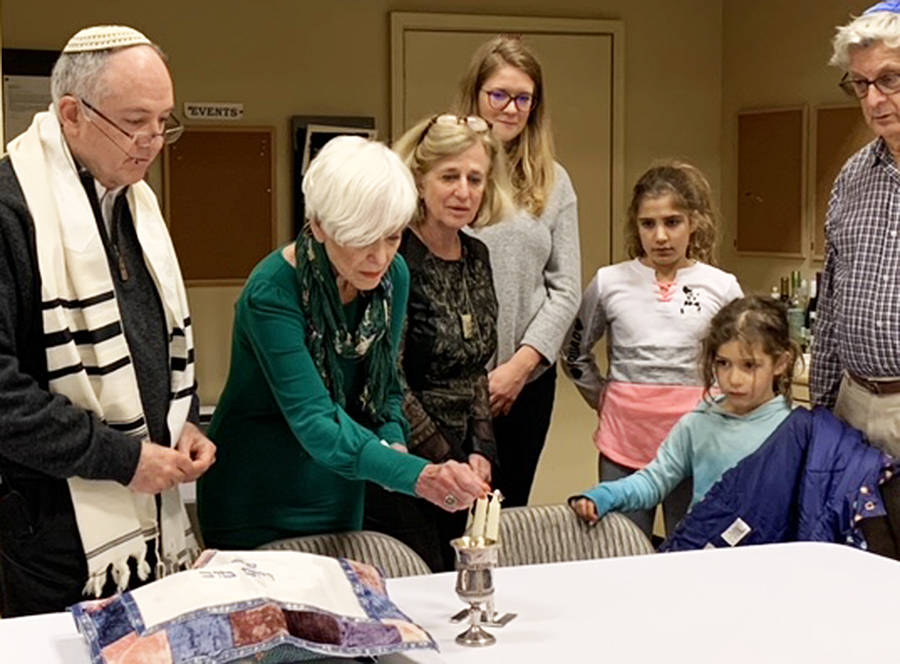Jewish congregation Kol Shalom on Bainbridge Island has been doing almost everything online the past 18 months, during the COVID-19 shutdown.
Bar and bat mitzvah ceremonies have continued via Zoom, requiring multiple cameras and coordination of participants in various locations around the world.
“While a ‘Zoom-Mitzvah’ was not what I imagined for my son,” said Erin Cyger, whose teenager was called to the Torah in July 2020, “it was still remarkably meaningful and allowed more people to attend than probably would have been able to otherwise … And instead of getting personalized yarmulkes, our friends sewed us coordinating face masks.”
But now, as Jews prepare for the holiest of Jewish holidays, Rosh Hashana (Sept. 6) and Yom Kippur (Sept. 16), Kol Shalom will finally come together in the sanctuary — led in-person for the first time by Rabbi Darío Feiguin. Attendance will be limited, but all services will be streamed.
The night before the formal installation of its new rabbi, Feiguin, on March 9, 2020, Kol Shalom received word that everything was about to be shut down due to the spread of COVID-19. The in-person event had to be canceled.
When Gov. Jay Inslee declared the official stay-home order days later, Feiguin had only just begun to know the 115 families of his new community. An Argentinian, Feiguin was most recently a rabbi in Costa Rica. He and his wife, Yudi, arrived on BI just four months before the quarantine.
Kol Shalom has been active the past 18 months, despite the pandemic’s restrictions.
“Being physically separate does not mean having to be alone,” Feiguin said. “We can try to feel close in different ways. In Judaism everything related to sanctity must be done with a group of at least ten people. We could not surrender to the idea of not being together.”
Kol Shalom has made the most of online worship and created an international community to observe and celebrate Jewish holidays. Shabbat services have been enriched with real-time participation of professional Argentinian musicians.
“As many congregations did, we developed multi-access services,” Feiguin said. “The particularity of our approach is that we are worshiping and playing music together live, with musicians who are thousands of miles away.”
As another enhancement to online worship, individual recordings of members singing prayers in their own homes were stitched together to create musical videos that are played during services.
The online services have attracted people from places as distant as Israel, New York City and Hawaii, in addition to members in Kitsap County. It also made possible the participation of members even from nursing homes.
Torah study, children’s Hebrew lessons, adult education and the synagogue’s book group have all been conducted remotely during the pandemic.



